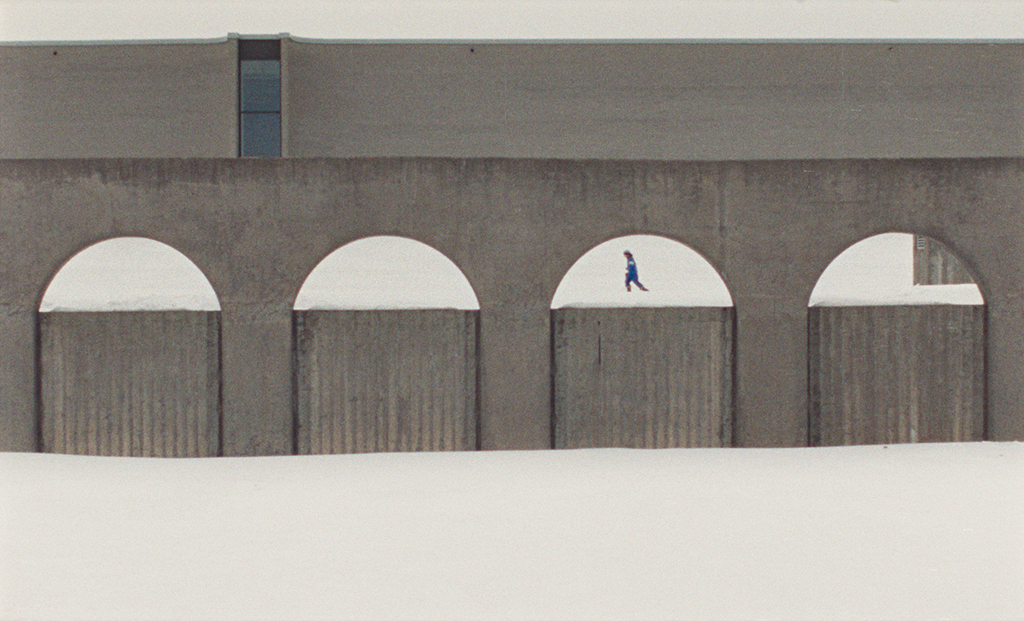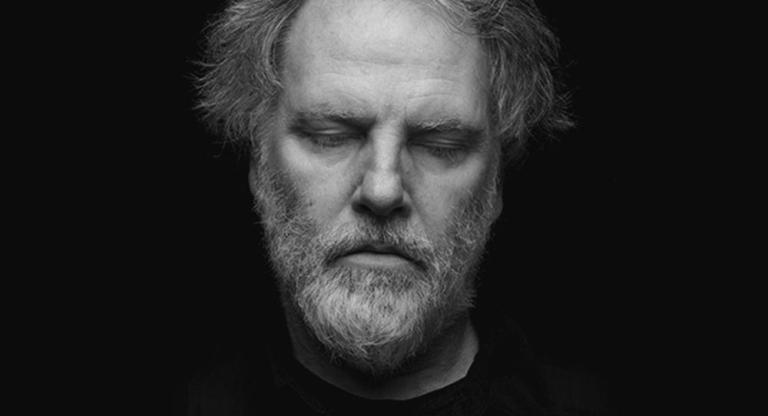Universal Language (2024), Matthew Rankin’s absurdist culture-clash comedy, bridges the gap between East and West with a topographic portmanteau of Winnipeg and Tehran. Rankin’s anachronistic fabulation of his hometown, where the dominant language is Farsi, stems from a sincere affection for Iranian Cinema, particularly the canonical texts which followed the 1979 revolution. Buttressing this meta-cinematic valentine to Abbas Kiarostami and Sohrab Shahid-Saless is a poignantly transnational meditation on the semiotics of nostalgia.
The clearest throughline in the film’s network narrative revolves around a fictionalized version of Rankin playing himself. Upon ending his tenure as a civil servant in Quebec, Matthew returns home to reconnect with his mother. Myriad characters, including two girls who find a 500 rial note frozen in ice and an ear-muffed tour guide named Massoud (Pirouz Nemati), parallel and ultimately converge with Matthew’s odyssey through a Tim Hortons serving chai and the cavernous, empty walkways of Portage Place.
The film’s planimetric mise-en-scène frames its ensemble against a beige canvas of brutalist structures. Coupled with the film’s visible grain, Rankin’s images are suffused with a haptic warmth that implicitly eulogises cinema as the supreme medium of the preceding century. Yet the film’s script, co-written with Nemati and Ila Firouzabadi, knowingly undercuts a retrograde reclamation of the past. Matthew’s visit to his childhood home, now occupied by a new family, gives the film its most moving passage, showing how time inscribes, and reconfigures, space.
That yearning for home, key to the “paradigm of exile”—to borrow a term from the writer Hamid Naficy’s article “The Poetics and Practice of Iranian Nostalgia in Exile”—that motivates diasporic Iranian filmmakers, is repurposed into Rankin’s intense longing for his parents, both of whom passed away in 2020. Yet is the comparison commensurate to living in exile? The answer is intensely subjective, and the film’s climax dramatizes the psychological sensation of realizing one has become “othered” within a society. While stirring, the film’s conclusion is almost too pat in its universalizing gestures, particularly when considering the concrete disparities that perpetuate global displacement.
Nonetheless, I’d argue that Rankin and his co-authors don’t try to resolve this quandary as much as they wryly seek to illustrate how empathy derives from recognizing one’s image through difference. It’s an unsentimental thesis whose urgency is incontrovertible in our dire global political climate. It’s within this dialectic, Universal Language reasons, that our ability as storytellers dwells and survives, emblematized by the cinema.
Universal Language screens today, February 15, and throughout next week at Angelika Film Center.





